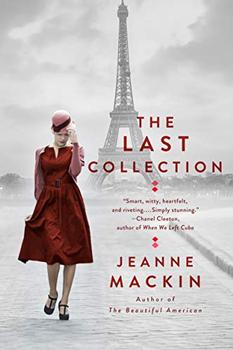Summary | Excerpt | Reading Guide | Reviews | Beyond the book | Read-Alikes | Genres & Themes | Author Bio

A Novel
by David R. GillhamIt is 1943 - the height of the Second World War - and Berlin has essentially become a city of women. In this page-turning novel, David Gillham explores what happens to ordinary people thrust into extraordinary times, and how the choices they make can be the difference between life and death.
It is 1943 - the height of the Second World War - and Berlin has essentially become a city of women.
Sigrid Schröder is, for all intents and purposes, the model German soldier's wife: She goes to work every day, does as much with her rations as she can, and dutifully cares for her meddling mother-in-law, all the while ignoring the horrific immoralities of the regime. But behind this façade is an entirely different Sigrid, a woman who dreams of her former lover, now lost in the chaos of the war. Her lover is a Jew.
But Sigrid is not the only one with secrets.
A high ranking SS officer and his family move down the hall and Sigrid finds herself pulled into their orbit. A young woman doing her duty-year is out of excuses before Sigrid can even ask her any questions. And then there's the blind man selling pencils on the corner, whose eyes Sigrid can feel following her from behind the darkness of his goggles.
Soon Sigrid is embroiled in a world she knew nothing about, and as her eyes open to the reality around her, the carefully constructed fortress of solitude she has built over the years begins to collapse. She must choose to act on what is right and what is wrong, and what falls somewhere in the shadows between the two.
In this page-turning novel, David Gillham explores what happens to ordinary people thrust into extraordinary times, and how the choices they make can be the difference between life and death.
Gillham's background as a screenwriter is evident throughout the narrative. He describes a bombed-out Berlin with an eye for detail so perfect his readers will have no difficulty envisioning the scenes he's depicting.
Beyond creating vivid scenes, the author does a masterful job of conveying the privations and constant sense of tension in the war-torn city. He illustrates the sacrifices the citizens of Berlin make for the war effort, the rationing and constant calls for donations of food and clothing they endured.
Gillham combines compelling characters and vivid descriptions of war-torn Berlin into a fast-paced plot that comes across as a surprisingly compelling and original story...continued
Full Review
(914 words)
This review is available to non-members for a limited time. For full access,
become a member today.
(Reviewed by Kim Kovacs).
Berlin, Germany's capital city, was home to more than four million citizens at the start of WWII.
Between 1940 and 1945, the city was the target of 363 air raids, with an estimated 20,000 civilians killed during the period. The most significant and organized series of raids occurred from November 1943 to March 1944.
 The controversial mission was led by Sir Arthur "Bomber" Harris, the Commander-in-Chief of Britain's Bomber Command, the branch of the Royal Air Force (RAF) that controlled Britain's bomber forces. Harris felt that a concerted air attack against the German capital would break the morale of its citizens and cause Germany to capitulate. "It will cost us between 400 and 500 aircraft," he is reported to have said, "but it ...
The controversial mission was led by Sir Arthur "Bomber" Harris, the Commander-in-Chief of Britain's Bomber Command, the branch of the Royal Air Force (RAF) that controlled Britain's bomber forces. Harris felt that a concerted air attack against the German capital would break the morale of its citizens and cause Germany to capitulate. "It will cost us between 400 and 500 aircraft," he is reported to have said, "but it ...
This "beyond the book" feature is available to non-members for a limited time. Join today for full access.

If you liked City of Women, try these:

by David R. Gillham
Published 2023
A captivating novel of a Berlin girl on the run from the guilt of her past and the boy from Brooklyn who loves her.

by Jeanne Mackin
Published 2020
An American woman becomes entangled in the intense rivalry between iconic fashion designers Coco Chanel and Elsa Schiaparelli in this vivid novel from the acclaimed author of The Beautiful American.



These are not books, lumps of lifeless paper, but minds alive on the shelves
Click Here to find out who said this, as well as discovering other famous literary quotes!